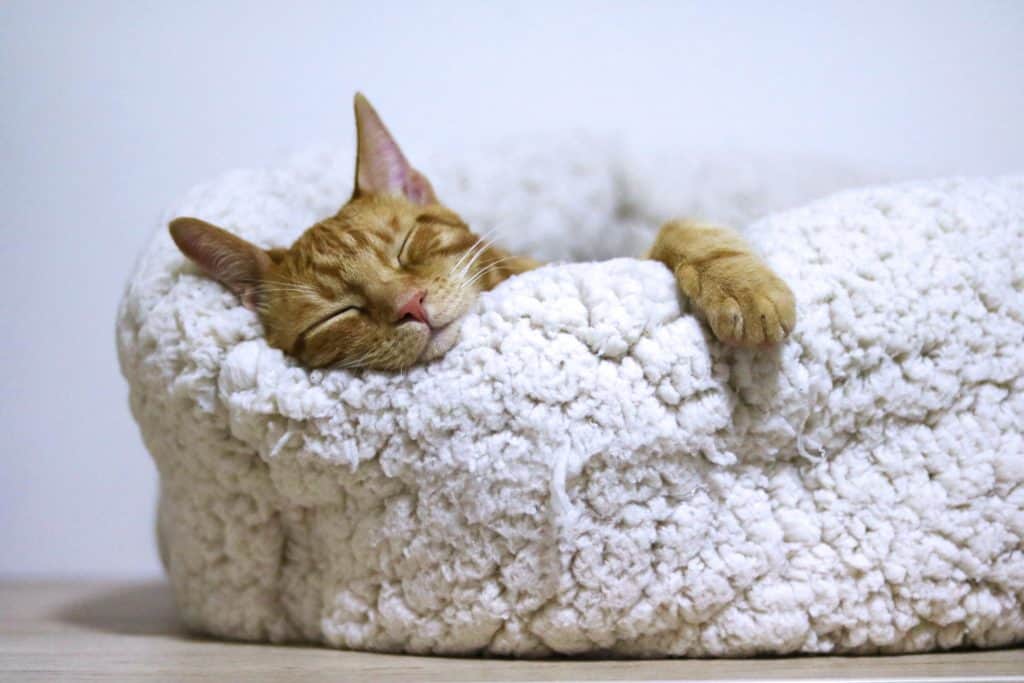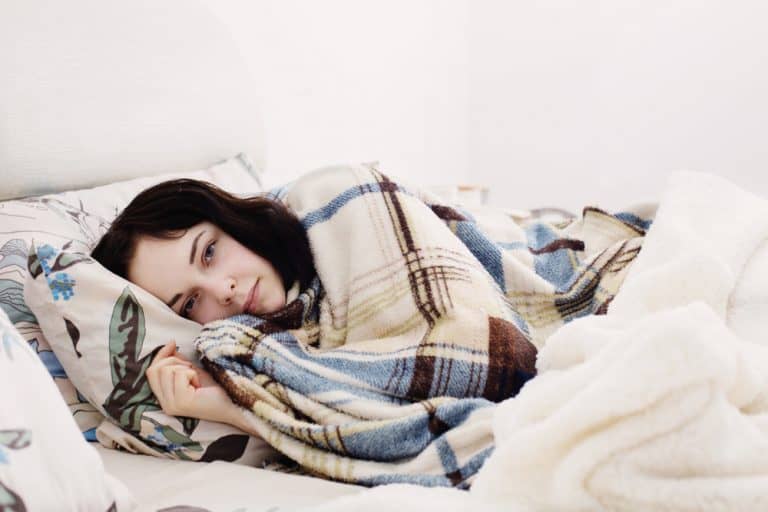
Weather changes can be agonizing especially if it disrupts your sleep.
Did you notice that certain weather patterns can influence how you sleep?
Environmental temperatures – air pressure, humidity, rain, snow, and heat – can serve as a factor that induces a bad or good rest.

Hot or Cold? Which is Better for Sleep?
Learn how the weather influences sleep and what can you do to have a good night’s sleep.
Can Cold Weather Help You Sleep Better?
Cold helps you sleep better, but winter can be damaging. Cold weather affects sleep and your body’s internal rhythms. It supports your body temperature and deep sleep process. That’s because when you prepare to sleep, your temperature begins to drop slightly lower before the sun rises in.
Fast fact, your temperature dips down during lunchtime also. That’s why you often feel sleepy!
If you need to sleep better at night, set the room temperature around 20 degrees. You can also open the doors and windows to let the cool outside air in.

While the cold air can invite good sleep, winter can be daunting to behold.
During winter, Vitamin D can be a problem because of the shorter days. That’s no joke, as Vitamin D helps to normalize serotonin which regulates our sleep cycles. When it has gone haywire, it can cause daytime drowsiness and fatigue.
What’s more, the lack of sunlight can get you SAD – Seasonal Affective Disorder. This increases feelings of drowsiness, tiredness, and depression. In some cases, SAD can even disrupt sleep cycles, but the feeling of being lethargic is there.
How About Stormy Weather?
Atmospheric pressure disrupts sleep

Thunderstorms may bring cooler nights, but the noise can disrupt sleep and create uneasiness too. Additionally, stormy weathers can bring allergies the next day due to the higher dust mites in the air. It was also found out that it causes obstructive sleep apnea and snoring to some extent.
Other reasons why thunderstorms bring sleep disruption is the constant pain in the body. The cold and damp temperature can increase pain in joints and because of the barometric pressure.
It’s Getting Hot in Here.
What about hot and humid air?

The rising temperature prevents you from sleeping by messing with the hormones needed for rest. Sleeping hot can make you toss and turn during the night with sweat. Overheating can cause further sleep disruptions and body conditions like an itch, sinus irritation, and allergies.
During spring and summer months, it can heighten your allergies because the heat brings in the pollen in the air. If you have reactions to pollen, you won’t be too surprised to know that hot and humid air can bring sleep disruptions that way.
What you can do to lessen the heat is to use light clothing while sleeping, crank the AC on, use a fan if needed, and open doors and windows to let the air in.
How to Prepare for Weather Changes

Seasons change – so, you have to prepare the bedroom conducive to the weather for a peaceful slumber the whole night.
Here’s what you can do:
How to prepare for weather changes
If you find yourself in a winter spell, you can change your beddings into something warmer. You can alter the linens, covers, and blankets to help you get settled. If you have a memory foam mattress, those bedding can warm up the bed.
Meanwhile, if the weather is too hot, choose sheets made of linen or cotton. They improve air circulation when you lie down.
Change your outfit for naptime
Add warmers like socks and gloves if the cold is bothering you. And if that’s not enough, add another layer of t-shirt to make you feel comfortable. Likely when you’re sleeping hot, you can change the beddings conducive to your needs.
Set regular sleeping times
Stick to your sleeping schedules so your body clock won’t mess up. This includes during holidays and weekends. It can be daunting at first, but you need to adjust with all the short or long daylight hours.
Get plenty of sunlight
Stick to your sleeping schedules so your body clock won’t mess up. This includes during holidays and weekends. It can be daunting at first, but you need to adjust with all the short or long daylight hours.
Eat a well-balanced diet
Eat nutritious food with sufficient vitamins and minerals to combat climate blues. Get yourself strong enough to battle flu, colds, and allergens.
Prepare medical kits nearby
You can use body protection items like gloves, arm support, and knee brace if it comes to body pain during rest. At the same time, keep your medications close to you for relief. It could be your antihistamines, anti-inflammatory tablets, or vitamins.

Discover Your Perfect Sleep
We have bed products ideal for all kinds of weather. We have flannel manchester on top of layer sheets, blankets, or duvet filling. Choose warmer blanket materials cool-air infused technology between the sheets.

Featuring our signature “Responsive” mattresses designed for comfort and support.

All of our sheets are made with select materials of the highest quality specially designed for better sleep.




